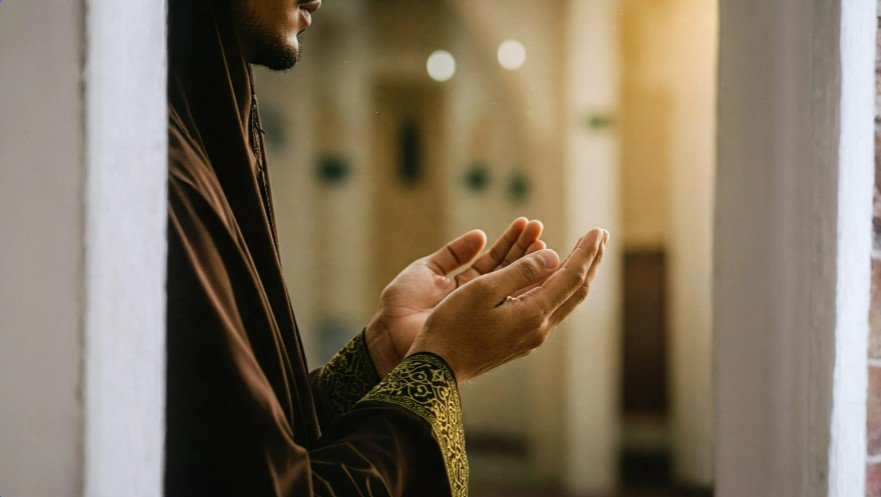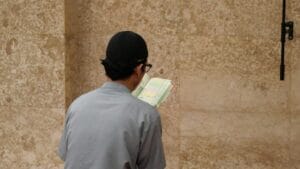Dua Qunoot is a powerful supplication recited by Muslims during specific prayers, particularly in the Witr prayer, which is performed after Isha. Known for its heartfelt plea for Allah’s guidance, protection, and forgiveness, Dua Qunoot holds a special place in Islamic worship. For English-speaking Muslims or those learning about Islam, understanding Dua Qunoot in English—its text, translation, transliteration, and spiritual significance—can deepen their connection to this beautiful act of devotion. In this comprehensive guide, we explore the meaning of Dua Qunoot, its benefits, when and how to recite it, and practical tips to incorporate it into your prayers, providing a reliable and inspiring resource for all.
Introduction to Dua Qunoot
Dua Qunoot, derived from the Arabic word “qunoot” meaning “humility” or “devotion,” is a supplication made while standing in prayer, typically during the Witr prayer, which is a Sunnah prayer offered in odd-numbered rak’ahs after Isha. This dua is a moment of intimate conversation with Allah, where Muslims seek His mercy, guidance, and protection from harm. The Prophet Muhammad (peace be upon him) recited Dua Qunoot, as narrated in authentic hadiths, making it a cherished practice in the Sunnah.
For English-speaking Muslims, learning Dua Qunoot in English—including its transliteration and translation—helps bridge the gap between Arabic and understanding, allowing for a more meaningful recitation. This article covers the text of Dua Qunoot, its spiritual and practical benefits, and step-by-step guidance on recitation, ensuring you have all the tools to embrace this powerful supplication.
Text of Dua Qunoot in English
Arabic Text
The most commonly recited version of Dua Qunoot, as taught by the Prophet (peace be upon him), is:
اللَّهُمَّ اهْدِنِي فِيمَنْ هَدَيْتَ، وَعَافِنِي فِيمَنْ عَافَيْتَ، وَتَوَلَّنِي فِيمَنْ تَوَلَّيْتَ، وَبَارِكْ لِي فِيمَا أَعْطَيْتَ، وَقِنِي شَرَّ مَا قَضَيْتَ، إِنَّكَ تَقْضِي وَلا يُقْضَى عَلَيْكَ، إِنَّهُ لا يَذِلُّ مَنْ وَالَيْتَ، تَبَارَكْتَ رَبَّنَا وَتَعَالَيْتَ
Transliteration
For those who struggle with Arabic pronunciation, the transliteration is:
Allahumma ihdini fiman hadayt, wa ‘aafini fiman ‘aafayt, wa tawallani fiman tawallayt, wa barik li fima a’tayt, wa qini sharra ma qadayt, innaka taqdi wa la yuqda ‘alayk, innahu la yadhilu man walayt, tabarakta Rabbana wa ta’alayt.
English Translation
The translation of Dua Qunoot in English is:
O Allah, guide me among those whom You have guided, and grant me well-being among those whom You have granted well-being, and take me under Your care among those whom You have taken under Your care, and bless me in what You have given, and protect me from the evil of what You have decreed. For indeed, You decree and none can decree over You. Indeed, he is not humiliated whom You have befriended. Blessed are You, our Lord, and Exalted.
Optional Additions
In some traditions, particularly during times of calamity, additional supplications are included, such as those taught by the Prophet (peace be upon him) to his grandson Hasan ibn Ali (may Allah be pleased with him). An example is:
اللَّهُمَّ إِنِّي أَعُوذُ بِكَ مِنْ شَرِّ مَا خَلَقْتَ
Transliteration: Allahumma inni a’udhu bika min sharri ma khalaqt.
Translation: O Allah, I seek refuge in You from the evil of what You have created.
Consult a knowledgeable scholar or imam to ensure additions align with your madhhab (Islamic school of thought).
When and How to Recite Dua Qunoot
When to Recite
Dua Qunoot is primarily recited in the Witr prayer, which is performed after Isha and before Fajr. The timing and placement vary slightly based on Islamic schools of thought:
- Hanafi Madhhab: Dua Qunoot is recited in the third rak’ah of Witr, before going into ruku (bowing), with hands raised.
- Shafi’i, Maliki, and Hanbali Madhhabs: It is recited in the final rak’ah of Witr, after ruku, while standing in qunut (a state of supplication), with hands raised or folded.
- During Calamities: Some scholars permit reciting Dua Qunoot in other prayers, like Fajr, during times of distress (e.g., natural disasters or oppression), as practiced by the Prophet (peace be upon him) in certain situations (Sahih Bukhari, No. 1003).
How to Recite
- Perform Witr Prayer: Begin with an odd number of rak’ahs (usually 1, 3, or 5).
- Reach the Qunoot Position:
- In Hanafi: After reciting Surah Al-Fatihah and another surah in the third rak’ah, raise your hands to your ears (takbir) and say “Allahu Akbar” before reciting Dua Qunoot.
- In Shafi’i/Hanbali: After ruku in the final rak’ah, stand and raise your hands for qunoot.
- Recite Dua Qunoot: Recite the dua in Arabic, preferably with understanding of its meaning. If you haven’t memorized it, you may read from a text or recite a shorter supplication in your language until you learn it.
- Make Personal Du’as: After the standard Dua Qunoot, you may add personal supplications in any language, asking for guidance, forgiveness, or specific needs.
- Complete the Prayer: Proceed with ruku (if Hanafi) or complete the prayer with tashahhud and salam.
Tips for Beginners
- Start with Transliteration: Use the transliteration to practice pronunciation. Apps like Quran Majeed or Muslim Pro offer audio guides.
- Learn Gradually: Memorize one line at a time, focusing on correct tajweed (pronunciation rules).
- Understand the Meaning: Reflect on the English translation to make the dua more heartfelt.
- Consult a Teacher: If unsure about timing or recitation, seek guidance from a local imam or online Islamic course.
7 Spiritual and Practical Benefits of Dua Qunoot
Reciting Dua Qunoot is more than a ritual; it’s a profound act of worship with numerous benefits. Here are seven key advantages, drawn from Islamic teachings and community experiences:
1. Strengthens Connection with Allah
Dua Qunoot is a direct appeal to Allah, fostering a deep sense of closeness and reliance. The phrases “guide me” and “take me under Your care” reflect complete trust in Allah’s wisdom, enhancing tawakkul (reliance on Allah).
- Impact: Regular recitation helps Muslims feel Allah’s presence in their lives, as promised in Surah Al-Baqarah (2:186), “And when My servants ask you concerning Me, indeed I am near.”
- Testimony: A convert from the UK shared, “Reciting Dua Qunoot makes me feel like I’m talking directly to Allah, especially when I’m struggling.”
2. Seeks Guidance and Protection
The dua asks for guidance (“guide me among those whom You have guided”) and protection (“protect me from the evil of what You have decreed”), safeguarding against misguidance and harm.
- Spiritual Shield: Scholars like Ibn Taymiyyah emphasize that such supplications protect against Shaytan’s whispers and worldly trials.
- Practical Benefit: Muslims report feeling secure and focused after reciting Dua Qunoot, especially during stressful times like exams or job interviews.
3. Promotes Humility and Gratitude
The phrase “Blessed are You, our Lord, and Exalted” glorifies Allah, while “bless me in what You have given” expresses gratitude for His provisions. This cultivates humility and contentment.
- Emotional Benefit: Reciting Dua Qunoot helps shift focus from worldly desires to spiritual priorities, reducing pride and envy.
- Community Insight: A mother from Pakistan noted, “Dua Qunoot reminds me to be thankful for my family and health, no matter the challenges.”
4. Seeks Forgiveness and Mercy
By asking Allah to “befriend” and not “humiliate” the believer, Dua Qunoot is a plea for forgiveness and mercy, aligning with the Quranic call to seek pardon (Surah Ghafir, 40:7).
- Spiritual Cleansing: This dua helps purify the heart, as the Prophet (peace be upon him) said, “Supplication is the essence of worship” (Tirmidhi, No. 3371).
- Testimony: A student from Malaysia shared, “Reciting Dua Qunoot after Witr feels like a fresh start, as if my mistakes are forgiven.”
5. Brings Peace and Stress Relief
The act of supplicating with Dua Qunoot, especially its plea for ease (“bless me in what You have given”), calms the heart and mind, offering relief from anxiety.
- Psychological Benefit: The Quran is described as a “healing and mercy” (Surah Al-Isra, 17:82), and Dua Qunoot’s soothing words embody this.
- Real-Life Example: A nurse from the US said, “Reciting Dua Qunoot after a long shift helps me unwind and find peace.”
6. Follows the Sunnah of the Prophet
Reciting Dua Qunoot is a Sunnah mu’akkadah (emphasized practice), as the Prophet (peace be upon him) taught it to his companions (Sunan Abi Dawud, No. 1425). This act earns spiritual rewards and strengthens one’s connection to the Prophet’s legacy.
- Spiritual Reward: Following the Sunnah brings blessings, as Allah says, “Whoever obeys the Messenger has obeyed Allah” (Surah An-Nisa, 4:80).
- Community Experience: A young scholar from Nigeria noted, “Dua Qunoot makes me feel closer to the Prophet’s teachings.”
7. Prepares for the Hereafter
Dua Qunoot’s focus on guidance, protection, and Allah’s exalted nature keeps the Hereafter in perspective, encouraging righteous deeds and accountability.
- Eternal Perspective: The dua’s plea for Allah’s friendship (“he is not humiliated whom You have befriended”) reminds Muslims to prioritize actions that earn Allah’s pleasure.
- Practical Impact: Regular recitation motivates Muslims to perform good deeds, like charity or helping others, as a means of preparing for the Day of Judgment.
Common Questions About Dua Qunoot
1. Can I Recite Dua Qunoot in English?
While the Sunnah is to recite Dua Qunoot in Arabic, beginners or those unable to read Arabic may recite the translation or a personal supplication in their language until they learn the Arabic text. Scholars like Sheikh Ibn Baz have noted that sincerity in du’a is paramount, but effort should be made to memorize the Arabic for authenticity.
2. Is Dua Qunoot Mandatory?
Dua Qunoot is Sunnah in Witr prayer, not obligatory, according to most scholars. The Hanafi madhhab considers it wajib (necessary), while Shafi’i, Maliki, and Hanbali view it as recommended. If you skip it, your Witr prayer remains valid, but reciting it earns greater rewards.
3. Can I Add Personal Supplications?
Yes, after reciting the standard Dua Qunoot, you may add personal du’as in any language, asking for specific needs like health, success, or guidance. The Prophet (peace be upon him) encouraged personal supplications during qunoot (Sunan an-Nasa’i, No. 1746).
4. What If I Make a Mistake in Recitation?
Mistakes in recitation do not invalidate the prayer, as long as the intention is sincere. Focus on improving your tajweed over time with the help of a teacher or app. Allah values effort, as stated in a hadith: “The one who recites the Quran and stumbles over it will have a double reward” (Sahih Muslim, No. 798).
How to Incorporate Dua Qunoot into Your Life
To make Dua Qunoot a meaningful part of your worship, follow these steps:
- Learn the Arabic Text: Use audio resources like Al-Quran (quran.com) or YouTube recitations by renowned qaris (e.g., Sheikh Mishary Rashid).
- Understand the Meaning: Study the English translation and tafsir (e.g., by Mufti Taqi Usmani) to connect with the dua’s message.
- Practice Daily: Recite Dua Qunoot in Witr prayer every night, even if you start with one rak’ah.
- Reflect on the Words: Pause to internalize phrases like “guide me” or “protect me,” making the dua personal.
- Teach Others: Share Dua Qunoot with family or friends to spread its blessings.
- Stay Consistent: Use a prayer app or journal to track your Witr prayer and Dua Qunoot recitation.
- Seek Knowledge: Enroll in an online Islamic course (e.g., through Al Balagh Academy or IOU) to deepen your understanding of Salah and supplications.
Must Read: 7 Secret Benefits of Reciting the Last Two Ayat of Surah Al-Baqarah
Why Dua Qunoot Is a Trusted Practice
Dua Qunoot is a reliable and authentic practice because:
- Authentic Sources: It is recorded in hadiths from Sahih Bukhari, Sunan Abi Dawud, and other collections, ensuring its legitimacy.
- Scholarly Endorsement: Scholars across madhhabs, including Imam Shafi’i and Imam Ahmad, emphasize its virtues.
- Universal Practice: Millions of Muslims worldwide recite Dua Qunoot, reflecting its acceptance and impact.
- Quranic Alignment: The dua’s themes of guidance, mercy, and humility echo the Quran’s teachings, making it a timeless supplication.
Conclusion
Dua Qunoot in English opens a window to one of Islam’s most beautiful supplications, allowing English-speaking Muslims to connect with its profound meaning and spiritual benefits. By reciting Dua Qunoot in Witr prayer, you strengthen your bond with Allah, seek His guidance and protection, and follow the Sunnah of the Prophet (peace be upon him). Its seven benefits—connection with Allah, guidance, humility, forgiveness, peace, Sunnah adherence, and preparation for the Hereafter—make it a transformative act of worship.
Start incorporating Dua Qunoot into your nightly prayers, even if you begin with the transliteration or translation. As you memorize and reflect on its words, you’ll discover its power to uplift your heart and soul. Share this practice with others, and let Dua Qunoot become a cornerstone of your spiritual journey, guiding you closer to Allah’s mercy and blessings.














Post Comment